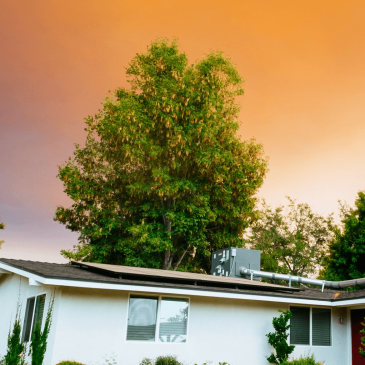Are Your Solar Panels Actually “Yours”?
Purchasing a solar system for your home is an excellent investment because it helps you save money on your energy bills, reduce your carbon footprint, and increase the value of your home. But life can be unpredictable, so while you may have had your solar system installed not intending to move, there may come a time when a move is necessary.
So, what happens to your solar system if you need to move? Can you take your solar panels with you, or do you need to leave them with the house for the new buyer?
Your options ultimately depend on a few different factors. In this post, we will examine your options, so you can have a better idea of what to expect should you find yourself relocating.
Purchased Solar vs. Leased Solar
If you are leasing your solar panels, then you won’t be able to take them with you in most cases because you don’t officially own them. The only way you could take your solar panels with you is if you purchased them. If you are leasing, then the panels would have to stay with the home and the new buyer would have to either agree to take over the lease or have the system removed.
Considerations for Taking Your Solar Panels With You
Because of the substantial financial investment that was made when you purchased your solar panels and all the benefits you have enjoyed since it was installed, your first instinct may be to take them with you. But there are a few factors you need to consider before making this decision, such as:
- Location of your new home: If you are moving across town or to another city that is still within your installation company’s service range, then your solar installer can usually perform the removal and re-installation of your system. But if the location of your new home is in another state or outside of your installer’s service range, then the process may not be worth it financially.
- Sun exposure at the new home: Solar works great for a lot of properties, but not all. If you are moving to a state with a colder climate and cloudier days, or your new property is heavily shaded, or your new home’s roof isn’t pitched facing the path of the sun, then you may want to leave your panels on your current home.
- Losing your warranty: If you are taking your solar panels with you, then it is important to remember that removing the panels will usually void their warranty. In fact, a lot of solar providers won’t even consider removing the panels due to warranty concerns.
If your new home turns out to be a good candidate for solar and you want to take your panels with you when you move, then the next step would be to talk with your solar provider about your options.
Considerations for Leaving Your Solar Panels for the New Buyer
As much as you love all the benefits your solar system provides, there are some compelling reasons why you might want to leave them behind for the home’s next owner. For instance, homes with built-in solar systems are in high demand, so leaving your panels in place will make your home more attractive to buyers. This means it will sell faster.
Solar also increases a home’s market value quite substantially because buyers are willing to pay more for homes with the technology already installed. How much? Several studies have shown that solar can increase a home’s resale value by up to $6,000 for each kilowatt of solar panels installed, or by about 4.1% of the home’s value. This increase alone can help cover the cost of having a brand-new solar system featuring the very latest technology installed at your new home.
Another thing you will want to consider is that by removing your panels and taking them with you, your old roof will need to be either repaired or replaced. This will result in you either paying for the repairs/replacement or giving the new buyer a credit. In either case, you could stand to lose a sizable portion of the profit you were hoping to get by selling your home.
Discuss All Your Options With Your Solar Provider
Whether you choose to take your solar panels with you when you move or leave them for the new homeowner, you must weigh all the pros and cons of each situation.
Taking the time to discuss all your options with your solar provider will give you the insight you need to make this difficult decision. Just remember, make your decision before putting your home on the market, so you can set the price of your home accordingly.

